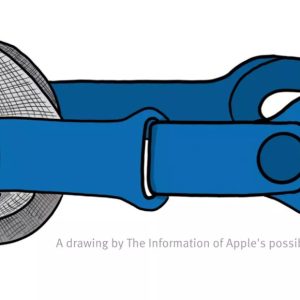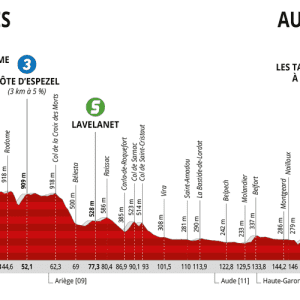interview
February 17 2022
The craze for the metaverse has taken on a new dimension with Facebook ads. Important questions arise about the Internet’s more comprehensive definition, between virtual and augmented reality, as well as about economic, monetary (with cryptocurrency) or even geopolitical aspects. A trend looms towards fragmentation, and even balkanisation, between companies as well as between geographies. Countries are encouraged to invest in various aspects of metaverses, to ensure certain economic rules, based on interoperability and respect for privacy. An update with Remy Bourget, IRIS Economist and Research Associate.
Digital doubling for the real world, is the metaverse within reach or is it a pipe dream? Is it a long-term business as Facebook ads might suggest?
The concept of the metaverse comes from the desire to imagine a new type of online social interaction, more immersive. The main view of metaverses, espoused by Facebook, is influenced by video games and is thus based on the idea of avatars interacting in a virtual world. But she is not the only one.
Games, such as the hugely popular Fortnite, already offer some form of metaverse and limited (divided into groups of players). They even now make it possible to organize mass concerts. Some games, such as the blockchain-based Sandbox, have a greater financial focus, using cryptocurrencies and NFTs (blockchain-based digital asset certificates). These include the highly questionable purchase of “virtual Earth” on the platform, using a cryptocurrency called “sand,” sand… Zuckerberg made a lot of noise by renaming Facebook “Meta.” It makes giant Metaverse the heart of his future vision of the Internet. Besides immersion in a world of social figures, the idea is to integrate all aspects of economic life. Advertising obviously stays at the heart of his project, but it’s about getting past that. Nike has announced that it is positioning itself as the default apparel in the metaverse…!
Over the past 15 years, social networks have turned the Internet upside down, for better and for worse, from misinformation to harassment to attention disorders. Aside from the risks, metaverse is about amplifying the digital experience, by allowing a greater level of sensory immersion, via virtual or augmented reality. However, interactions in the metaverse can still be centered around the real world, for professional meetings for example. With the Mesh service, Microsoft is clearly positioning itself on this kind of incremental approach. Maximum vision, like Zuckerberg’s, remains remote, given current computer resources. In fact, it would probably require a fundamental computing revolution and possibly outlast the semiconductor era.
In the face of the many services offered by the metaverse, many players are rushing to invest in this digital world. Can this reshuffle digital cards and weight GAFAM?
In the face of the difficulty of defining the metaverse, the only certainty lies in the enormity of the investments required. Facebook is ready to invest and lose huge sums ($10.2 billion loss in 2021) Reality Labs‘) to see it replace reality. Microsoft and Google are taking a more incremental approach. Microsoft and Google are instead focusing on professional tools and Google on augmented reality, with goggles meant for everyday life, and integrating their various services. Amazon keeps sight out of sight. One could easily imagine The potential for virtual stores, perhaps for virtual goods via NFT for example, but especially as an extension of our good old real world delivery shopping platforms.The internet experience enriched in terms of sensory interactions actually goes beyond the issue of video game-inspired avatars.
One can imagine a desire on the part of individuals to reduce immersion, and to offer outlets for less pharaonic tech solutions. The audiobook is an intensely immersive experience, one might say of augmented reality, as it can be combined with some of the work of everyday life, while still being less invasive than photo exposure, from the top priorities in 3D. The arrival of large-sized smartphones has led many young public transport users to watch soap operas. This trend appears to have been replaced, at least in Europe, by the simple use of wireless headphones, for smoother immersion.
There is no guarantee that the maximum versions of MetaVersat will be financially successful. There is undoubtedly a revolution coming in the development of a more comprehensive Internet. However, the key to a well-designed metaverse depends, hopefully, on respecting a certain human equilibrium, through a logical amalgamation in real life. This is what could allow new players to emerge, perhaps with better calibration means. To this end, states need to be in place to define rules that will ensure access under acceptable conditions for all digital players to different metavers and a significant level of interoperability, allowing them to offer their services on multiple platforms.
NFT, cryptocurrency, metaverse… Is this a risk to countries and their economy? How do they organize themselves to try to regulate these digital disruptions?
The concept of a virtual exchange world, with decentralized monetary tools and no geographic borders, poses a challenge to states in terms of economic control, taxation, as well as maintaining order.
For authoritarian states, which have the means and a technological sector advanced enough to develop their own platforms, metaverses, on the contrary, can allow for greater social control. In the same way, the digital giants will have access to a private life that has never been seen before in history. One can imagine a major disintegration, balkanization of the Internet according to the different interpretations of the concept of the metaverse. This split will not only occur between platforms within a geographic area, but more so among political forces. China will have its own (or its own) destination, just as it already blocks most services from giant US companies.
It is necessary that liberal states also give themselves the means to embrace this revolution, especially to understand its sources and be able to accompany it. Countries are already mired in the rise of cryptocurrencies, which go beyond the traditional cash network. Major central banks struggle to create their own digital currencies, respect the current situation Given the smallest details, the mountain risks giving birth to a mouse. It is precisely necessary to integrate state mechanisms into the emerging digital constructions. In addition to the monetary aspect, states must ensure the development of real competition between companies of different sizes in the digital environments of the giants of the sector and establish new rules for respecting private life.

“Certified gamer. Problem solver. Internet enthusiast. Twitter scholar. Infuriatingly humble alcohol geek. Tv guru.”





